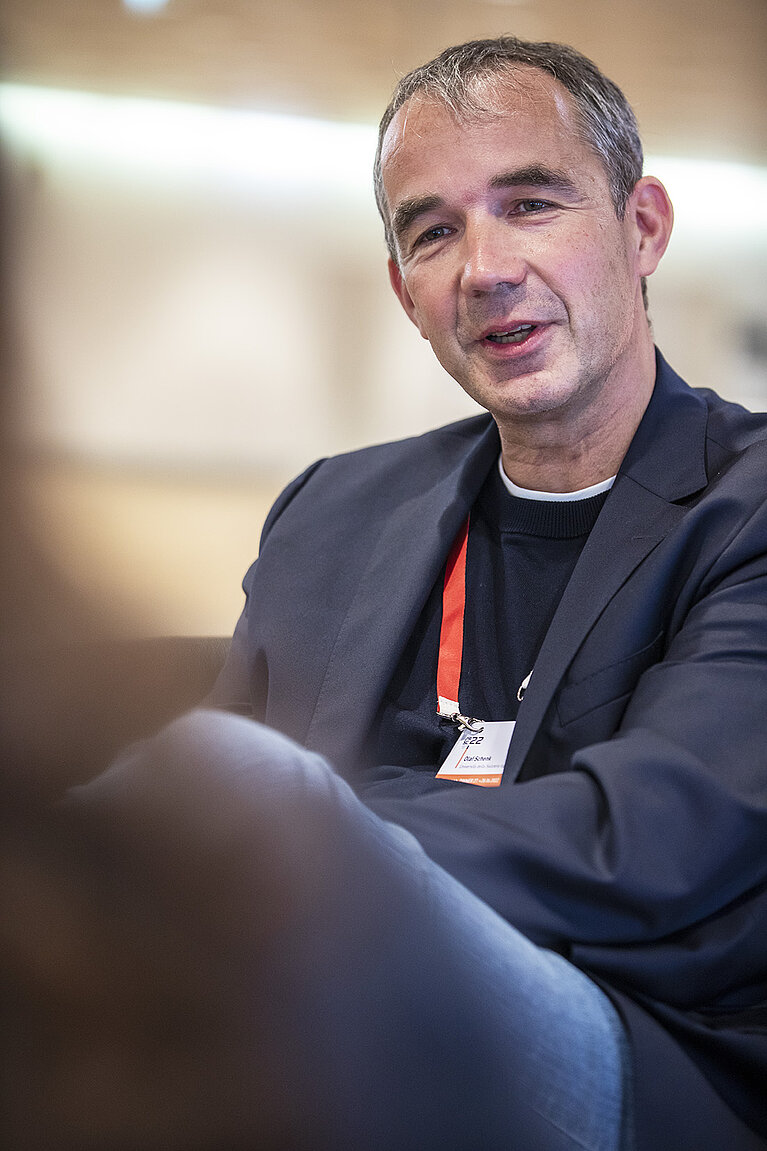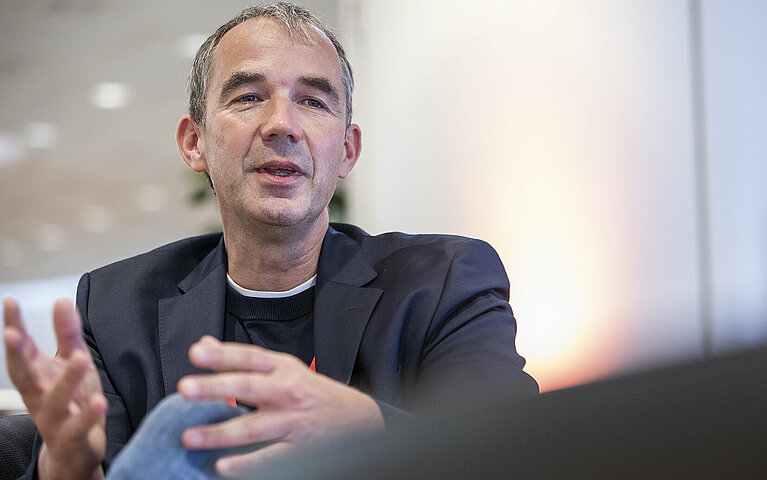August 16, 2022 - by Simone Ulmer
Olaf Schenk, how did the first PASC Conference come about?
OS: We wanted to organise a conference platform that brings together the different stakeholders and scientists — mainly Swiss scientists in the first conference — who use high-performance computing, data analysis and computational science. That didn't exist before. We managed to do that very successfully in 2014 at ETH Zurich, with eight international participants joining the 250 national participants, and the conference was very well received.
Did the conference hit the mark in the community?
OS: It was mainly people from physics who dealt with computing and simulations at that time, because the overlapping disciplines did not yet exist. But the conference together with the PASC initiative attracted people not only from the PASC projects but also from various other departments at ETH who for the first time participated in such an interdisciplinary exchange.
How would you describe the development from 2014 to today in two sentences?
OS: The conference has become more international, and many attendees have been coming to the conference for years, which is important. The program has become more diverse as a result.
More diverse in what way?
OS: At the beginning there was no Paper Track, no Interdisciplinary Dialogue, no Poster Flash Session, and other components were also missing.
This year, the PASC Conference had 400 participants, around 60 percent from abroad. What is the recipe for success of the PASC conferences?
OS: The format is suitable for different disciplines; it is not too specific in one direction but still focused. While the keynotes are more general, the mini-symposia can then discuss a specific topic of a certain research area in more depth with experts in the field. This year, for example, we have organised a mini-symposium with a very well-known professor from the USA, George Karypis. He deals with graph analytics, has received various lifetime awards, and has been an Amazon Fellow for five years. He has recently developed a partitioning software that decides how to distribute a simulation over many processes. It is being used in many simulation projects at CSCS. Karypis brings a lot of expertise, but also enjoys coming to the PASC Conference because other areas are represented. This shows that the PASC Conference is also interesting for senior scientists.
So interdisciplinarity attracts people…
OS: Yes, it does indeed. I just met a new faculty colleague from ETH Zurich at the conference this year who organised a mini-symposium with other colleagues from ETH Zurich, for which they were able to secure very renowned speakers e.g. from Stanford and other research labs. For us, this is a sign of the quality of the conference.
Can you give us a little insight behind the scenes? This year the conference is themed "Computing and Data ...For All Humankind". Who sets the focus and how do you go about finding topics?
OS: The nine members of the Steering Committee determine the two chairs of the conference. This year, they were Lois Curfman McInnes from Argone National Laboratory and Petros Koumoutsakos from ETH Zurich and Harvard University. Essentially, it is then the task of the chairs to define the theme of the conference. The keynote speakers will then be selected according to the thematic focus. The Interdisciplinary Dialogue is also organised by the Chairs. This year, for example, its topic, "Data Science for Social Equality", fits in very well with the thematic focus. The chairs must be well connected so that they can also appoint the session chairs of the mini-symposia, and the mini-symposia should also cover the thematic focus. However, this is the responsibility of the session chair, who assembles their own speakers.
The Association for Computing Machinery (ACM) has been a co-sponsor of the PASC Conference since 2016. How has this appreciation affected the conference?
OS: As you say, it's a certain kind of appreciation that the conference is sponsored by the community like ACM or SIGHPC, It is also excellent , that SIGHPC provides ACM Student Travel Grants for four students to attend the conference. The students then get a host to look after them during the event. I was a host this year together with Florina Ciorba from the University of Basel, and we looked after two students each. We introduced them to colleagues and tried to get them involved and help them build their network. Some students are very open and do it themselves, while for others it might be helpful to introduce them to people and guide them a bit. On the one hand, this award is something for their CV and on the other hand, they also enjoy being part of the conference.
What is the best thing about being part of the PASC community, specifically, being a member of the steering committee?
OS: I see it as a service to the community. It is a pleasure to exchange ideas with colleagues and to meet regularly.

